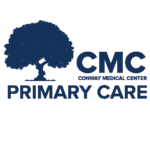Empty Nest Syndrome- Not just surviving but thriving
The long days of parenting babies and toddlers
Ask any parent and they can tell you that the early days of parenting can feel never ending. The endless washing of bottles, loads of laundry, and sleepless nights could have you longing for just a few moments to yourself. Dr. Ross of CMC Primary Care Towne Center reminds new parents “remember to take time to care for yourself and your marriage, because we went to invest so much in our children and work.” He adds, it’s easy to become “Mary’s mom or Jimmy’s dad, and lose some of your self identity.”
Your little chicks fly the coop
The moment then arrives where your little one has flown the coop. Whether they are off to college, backpacking across Europe, or getting their first job and apartment, this inevitable right of passage can hit you like a thunderbolt.
What is empty nest syndrome?
While empty nest syndrome is not a disorder or diagnosis recognized by the diagnostic and statistical manual of mental disorders, yet it has very real symptoms. Parents and caregivers may experience a deep sense of loss, grief, sadness, anxiety, loss of control, and other complex emotions when their children move out of the family home.
How can I prepare for an empty nest
So much of our identity as parents is rooted in our parenting role. Whether you were a theater mom, a soccer mom, a baseball dad, or a PTO grandparent, managing our children’s schedules, activities, interests and social lives is a full time job. This is why the sudden change in routine can be so jarring.
It’s important that we never lose sense of our own individuality and identity once we become parents. Hobbies, interests, friendships, work and/or volunteering are all ways we can stay whole and fulfilled in our lives. According to Penn State, a 2020 study conducted showed that “75% of people viewed having more time to pursue their interests and hobbies during the pandemic has a positive impact on their lives during a stressful time.”
Dr. Ross of CMC Primary Care Towne Center shares “take sometime to reconnect with your inner child. What were some activities you enjoyed as a kid? It could be as simple as riding a bike, painting, hiking, or a sport you enjoyed in school.”
Taking care of your physical and mental health during periods of change
Empty nest syndrome can be uncomfortable and unsettling. It also affects people differently. One parent may feel an overwhelming sense of grief while the other is excited to travel with their new found freedom. Your parenting role can also determine how you process this change. Dr. Ross reminds us “it’s ok to be sad. Take some time to acknowledge your feelings. Writing them down in a journal, or talking through them with a friend or therapist can provide great insight and relief.”

Reconnect with your partner
An empty nest provides a great opportunity to reconnect with your partner. Get to know them for who they are today. Try something new! A cooking class, paddle boarding session, surf lesson, or yoga class are all great ways to experience something new and reconnect with your loved one. Having experienced an empty nest himself, Dr. Ross shares “it can be refreshing, a new chapter in your marriage to begin dating all over again.”
You can still be there for your kids
Even though your role may change, you’re always mom and dad. Find new ways to connect with your adult children, while still being there for them. Dr. Ross recommends continuing to take family vacations or plan date nights with your kids when they are home. Finding a new activity that you can do together can be a great way to foster new connections and memories!
Scott Ross, MD

At CMC Primary Care Towne Center we believe that your health requires a great partnership, convenience, and compassion. Our team of highly trained doctors in Myrtle Beach, SC are your partner in health for life.





